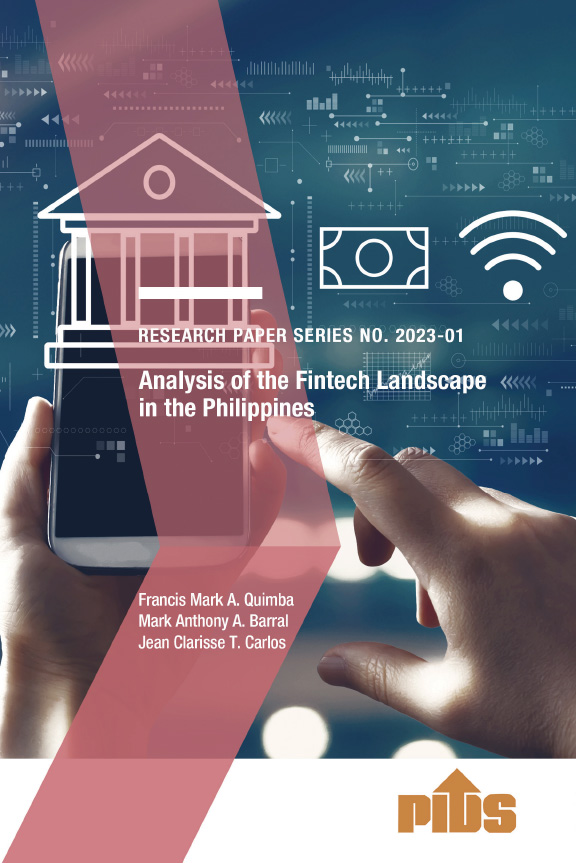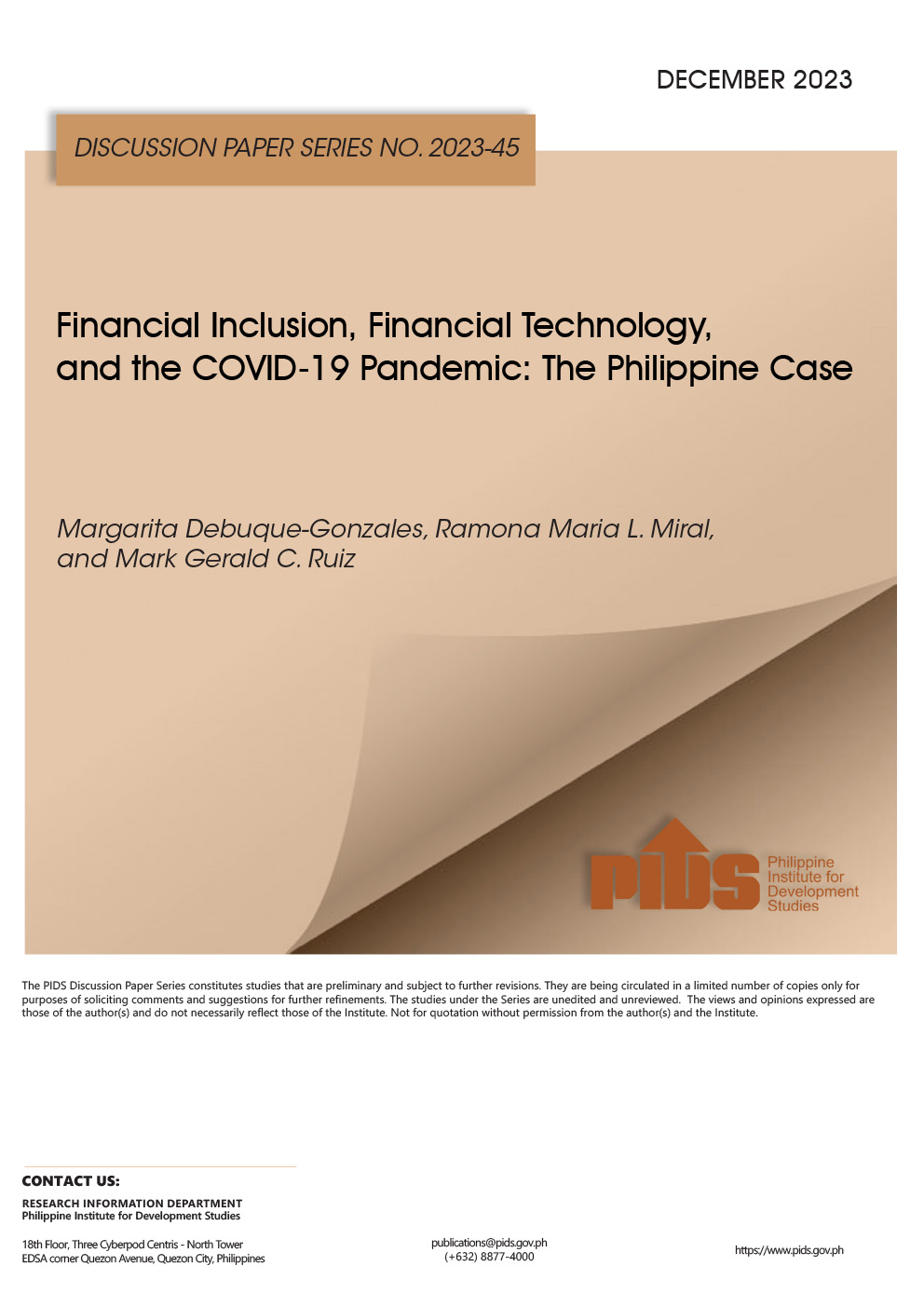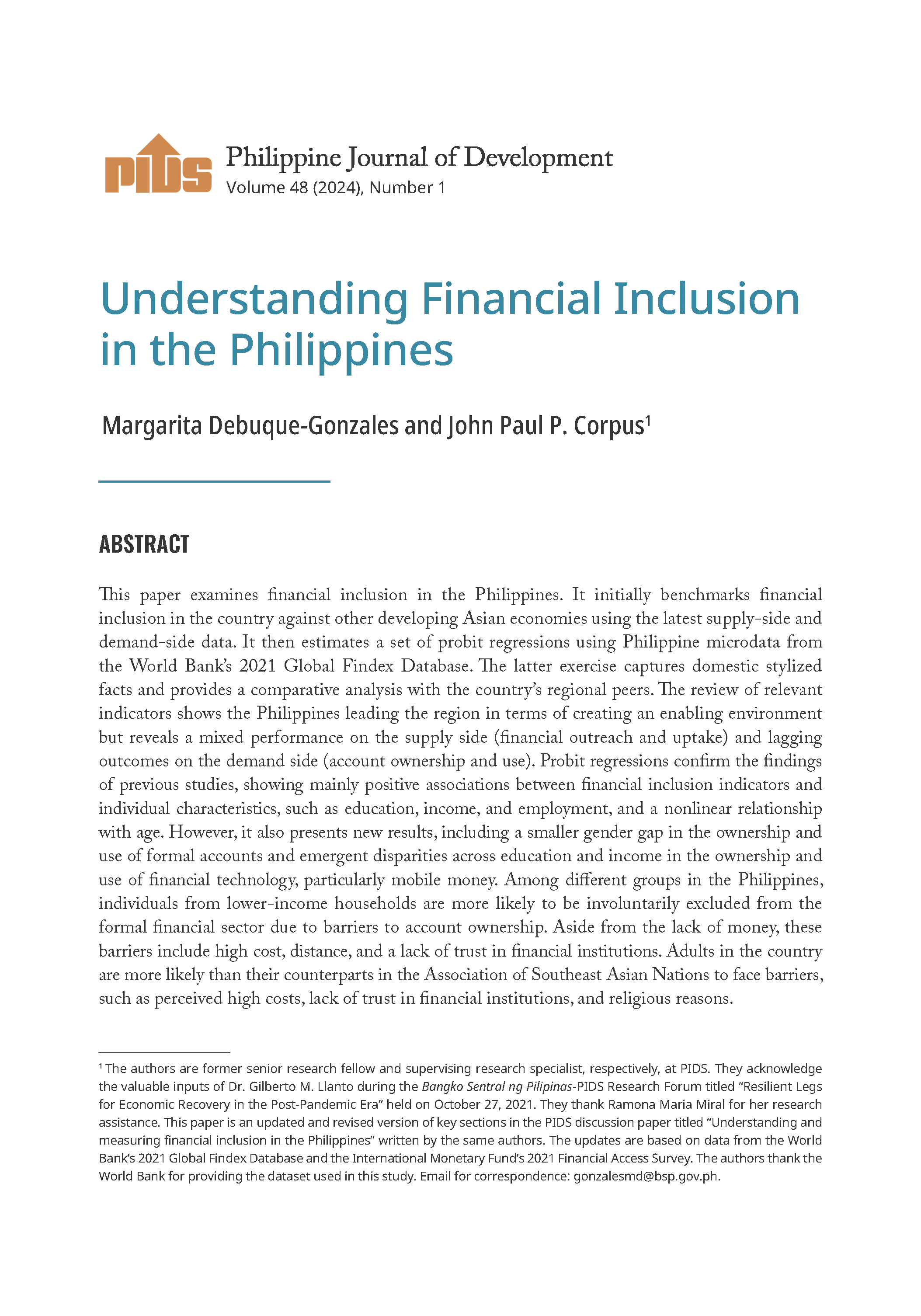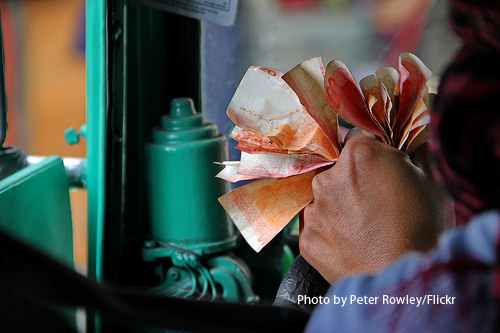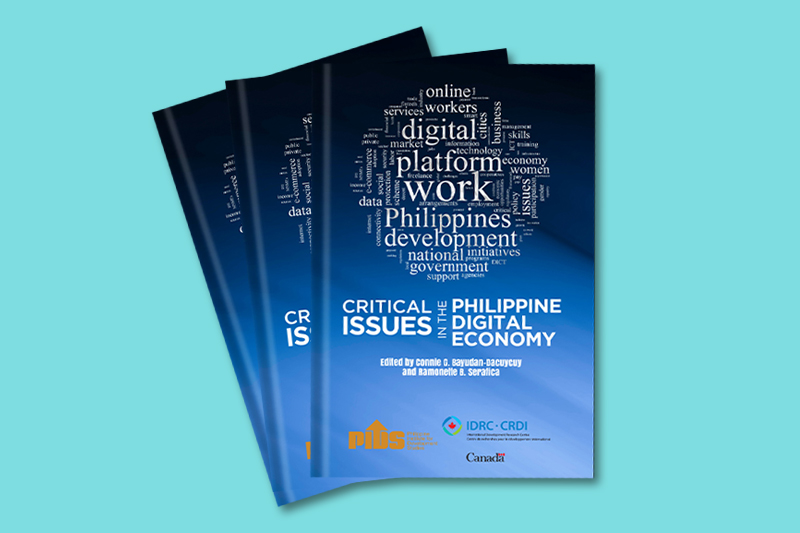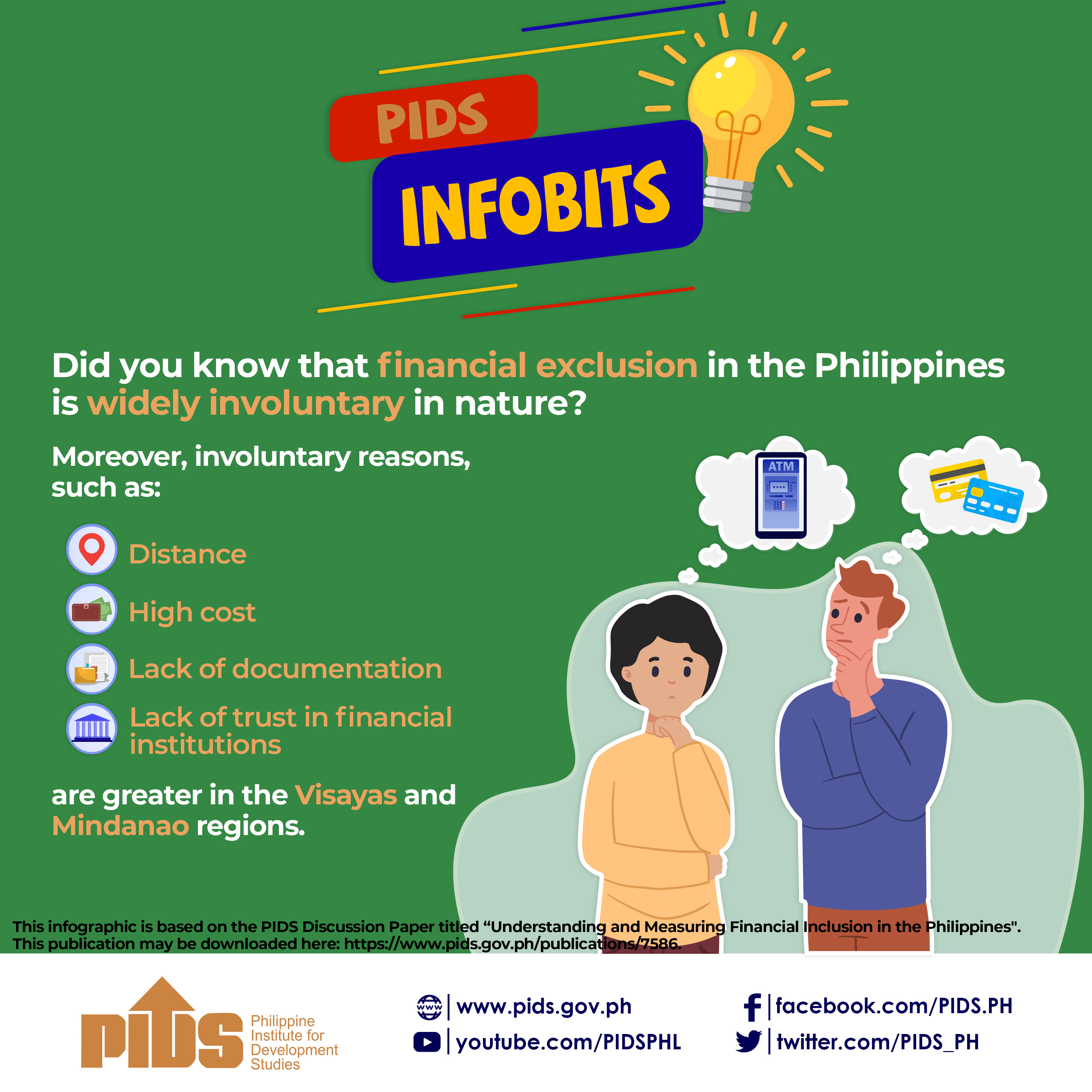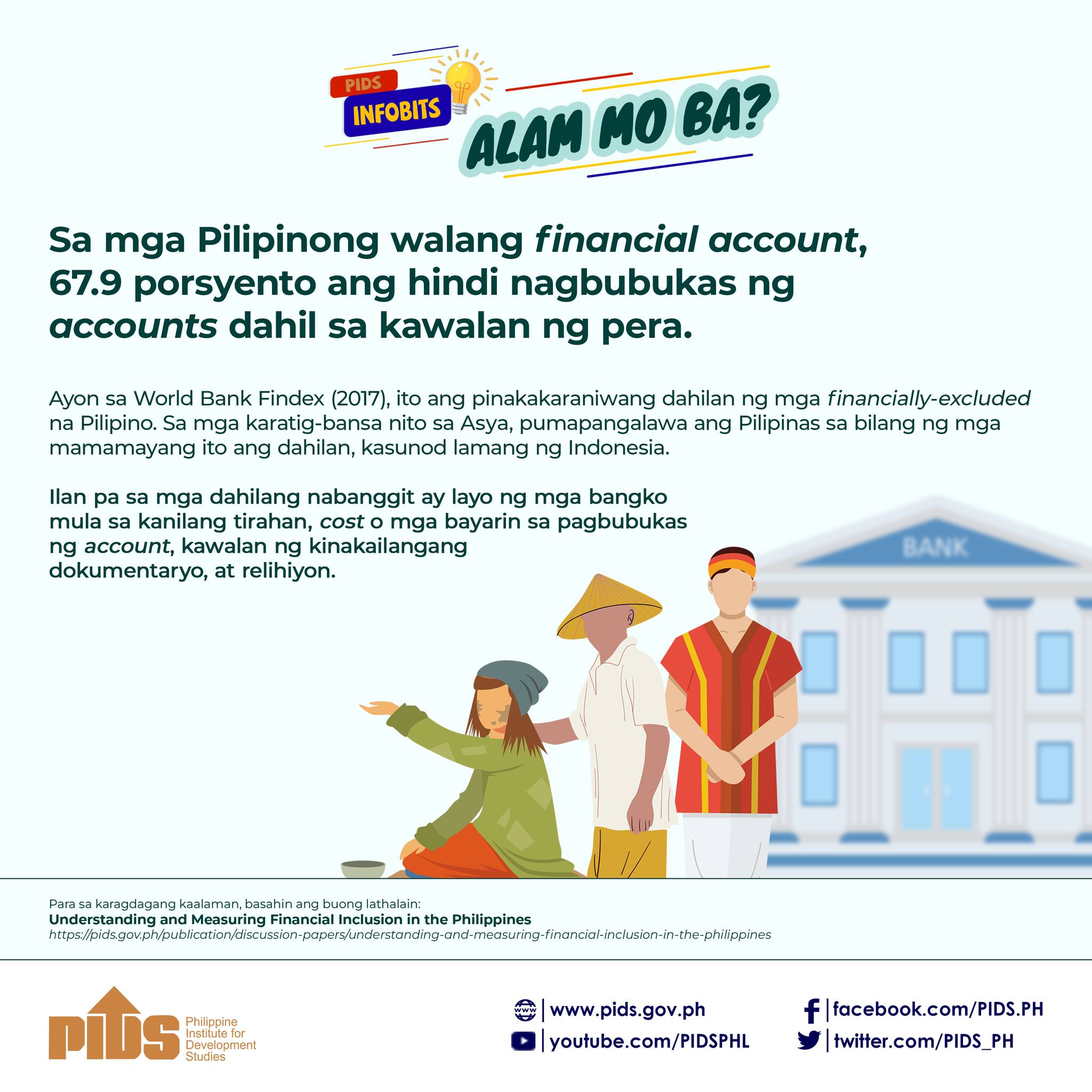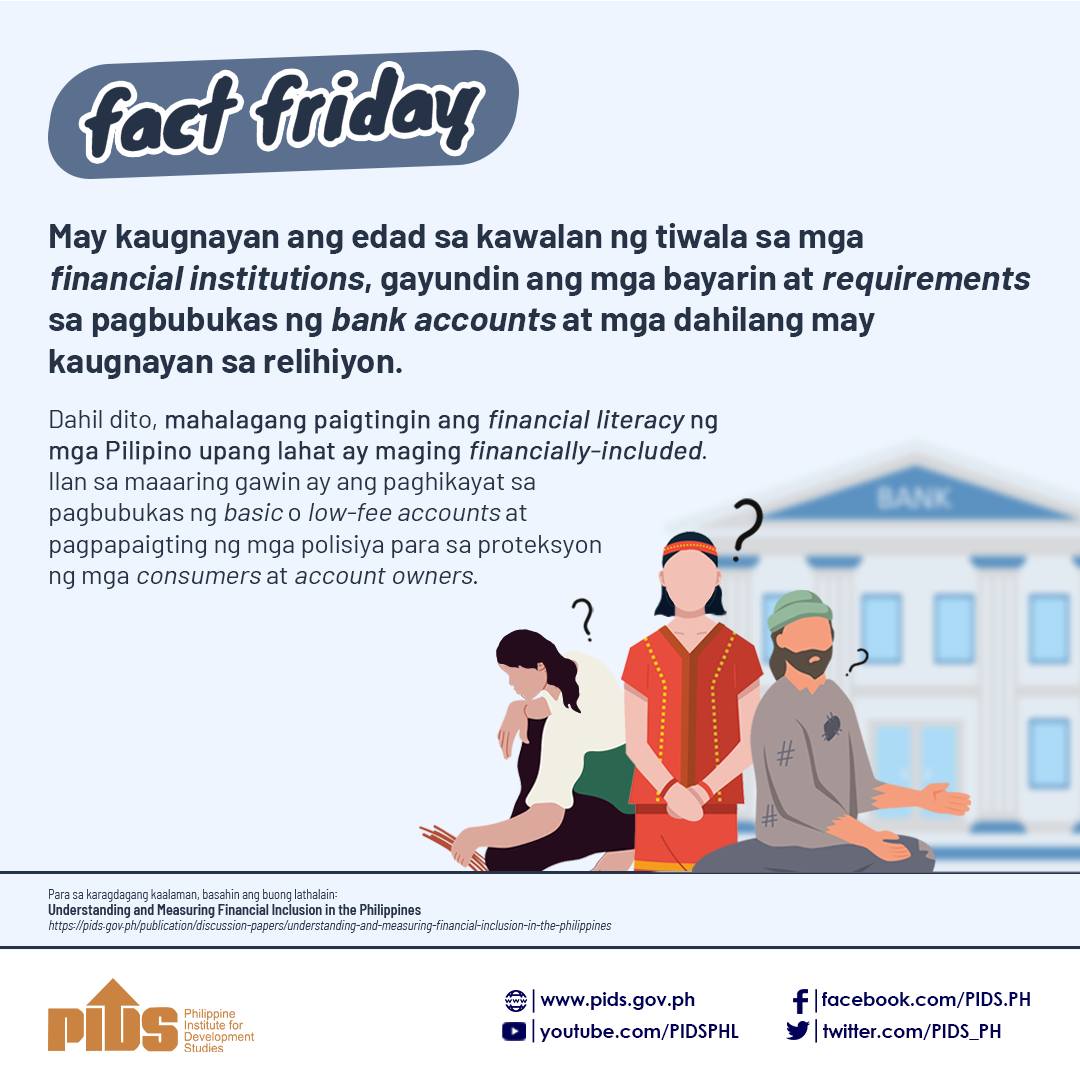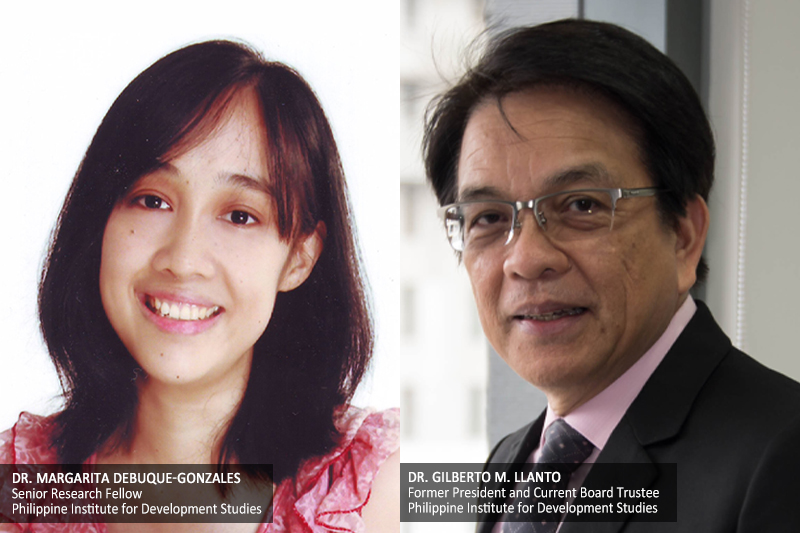
New research suggests that there will be an increase in extreme poverty resulting from the COVID-19 pandemic. For Filipinos, one way to address this is through financial inclusion.
This was according to Margarita Debuque-Gonzales, senior research fellow at the Philippine Institute for Development Studies (PIDS), who presented the PIDS study titled “Understanding and measuring financial inclusion in the Philippines” in a research forum jointly organized by PIDS and the Bangko Sentral ng Pilipinas. The study was coauthored with PIDS Supervising Research Specialist John Paul Corpus.
“Financial inclusion helps individuals and small businesses invest for the future. It helps smooth consumption. It helps households and small businesses manage their finances. Therefore, it can help enhance productivity and long-term growth, and potentially help reduce poverty and inequality,” Debuque-Gonzales said.
However, financial inclusion in the Philippines still needs improvement in some areas.
Citing 2020 data from the Global Microscope Economist Intelligence Unit, Debuque-Gonzales said the Philippines is leading in terms of having an enabling environment for financial inclusion among Asian countries such as China, India, Malaysia, Thailand, Indonesia, Viet Nam, Cambodia, and Myanmar. However, the country is “challenged” when it comes to payments infrastructure, internet connectivity, digital identification, and credit information.
According to the World Bank Global Findex 2017, the Philippines also lags in terms of ownership of financial accounts. The same report showed that the reasons for being financially excluded in the Philippines are due to cost, documentation issues, and distance.
Meanwhile, the PIDS study found a “wide gap” in financial inclusion index, including outreach and usage subindices, among the regions in the Philippines. The National Capital Region has consistently topped the list, while the Bangsamoro Autonomous Region in Muslim Mindanao and Eastern Visayas were at the bottom.
Speaking at the same research forum as a discussant, former PIDS president and current member of the board of trustees Gilberto Llanto likewise said that “geography remains a critical determinant of account ownership, usage and even [financial technology] fintech use.”
Other findings of the study showed that financial inclusion among Filipinos, particularly account ownership and credit use, is more likely “if one is richer, more educated, wage-employed, female or older”.
The study also pointed out that formal credit is still underdeveloped in the country. Debuque-Gonzales said that improvement in education can help provide Filipinos better access to formal borrowing sources.
Debuque-Gonzales provided recommendations to improve financial inclusion in the country, one of which is by improving financial education. In particular, she mentioned the creation of programs that will improve math and financial literacy.
“What I [would] like to emphasize here is the importance of math… People need to develop math literacy skills to really understand finance. We need it at the functional level and even at the basic level, meaning from basic education,” she explained.
The author also said it would help if the government would encourage the use of basic or low-fee accounts and implement consumer protection policies.
Finally, Debuque-Gonzales warned against risks that come with financial innovations. She called on lawmakers and regulators to “continuously strike an optimal regulatory balance to foster both financial inclusion and financial stability”. ###
You may watch the webinar at https://fb.watch/9dLSnQbPoC/ or https://youtu.be/v_yqrofItA0.
For more videos of PIDS events, go to https://www.pids.gov.ph/videos.
This was according to Margarita Debuque-Gonzales, senior research fellow at the Philippine Institute for Development Studies (PIDS), who presented the PIDS study titled “Understanding and measuring financial inclusion in the Philippines” in a research forum jointly organized by PIDS and the Bangko Sentral ng Pilipinas. The study was coauthored with PIDS Supervising Research Specialist John Paul Corpus.
“Financial inclusion helps individuals and small businesses invest for the future. It helps smooth consumption. It helps households and small businesses manage their finances. Therefore, it can help enhance productivity and long-term growth, and potentially help reduce poverty and inequality,” Debuque-Gonzales said.
However, financial inclusion in the Philippines still needs improvement in some areas.
Citing 2020 data from the Global Microscope Economist Intelligence Unit, Debuque-Gonzales said the Philippines is leading in terms of having an enabling environment for financial inclusion among Asian countries such as China, India, Malaysia, Thailand, Indonesia, Viet Nam, Cambodia, and Myanmar. However, the country is “challenged” when it comes to payments infrastructure, internet connectivity, digital identification, and credit information.
According to the World Bank Global Findex 2017, the Philippines also lags in terms of ownership of financial accounts. The same report showed that the reasons for being financially excluded in the Philippines are due to cost, documentation issues, and distance.
Meanwhile, the PIDS study found a “wide gap” in financial inclusion index, including outreach and usage subindices, among the regions in the Philippines. The National Capital Region has consistently topped the list, while the Bangsamoro Autonomous Region in Muslim Mindanao and Eastern Visayas were at the bottom.
Speaking at the same research forum as a discussant, former PIDS president and current member of the board of trustees Gilberto Llanto likewise said that “geography remains a critical determinant of account ownership, usage and even [financial technology] fintech use.”
Other findings of the study showed that financial inclusion among Filipinos, particularly account ownership and credit use, is more likely “if one is richer, more educated, wage-employed, female or older”.
The study also pointed out that formal credit is still underdeveloped in the country. Debuque-Gonzales said that improvement in education can help provide Filipinos better access to formal borrowing sources.
Debuque-Gonzales provided recommendations to improve financial inclusion in the country, one of which is by improving financial education. In particular, she mentioned the creation of programs that will improve math and financial literacy.
“What I [would] like to emphasize here is the importance of math… People need to develop math literacy skills to really understand finance. We need it at the functional level and even at the basic level, meaning from basic education,” she explained.
The author also said it would help if the government would encourage the use of basic or low-fee accounts and implement consumer protection policies.
Finally, Debuque-Gonzales warned against risks that come with financial innovations. She called on lawmakers and regulators to “continuously strike an optimal regulatory balance to foster both financial inclusion and financial stability”. ###
You may watch the webinar at https://fb.watch/9dLSnQbPoC/ or https://youtu.be/v_yqrofItA0.
For more videos of PIDS events, go to https://www.pids.gov.ph/videos.

